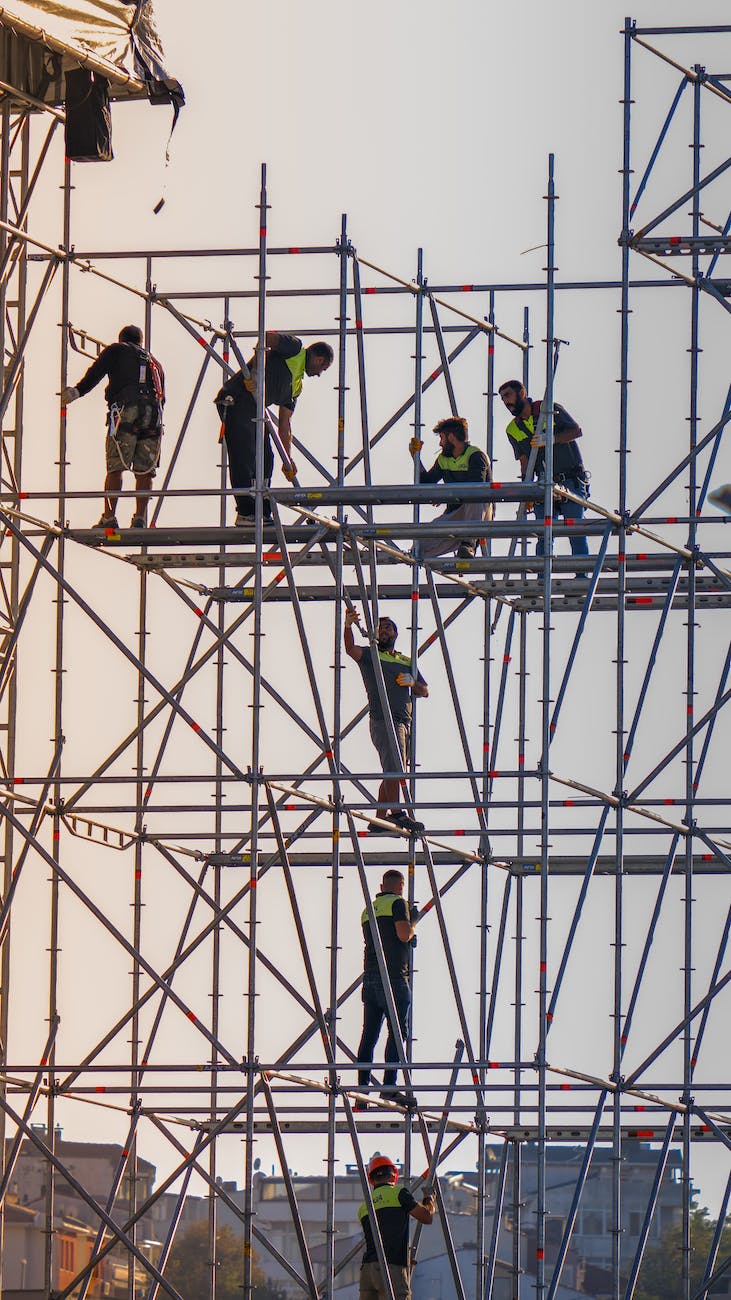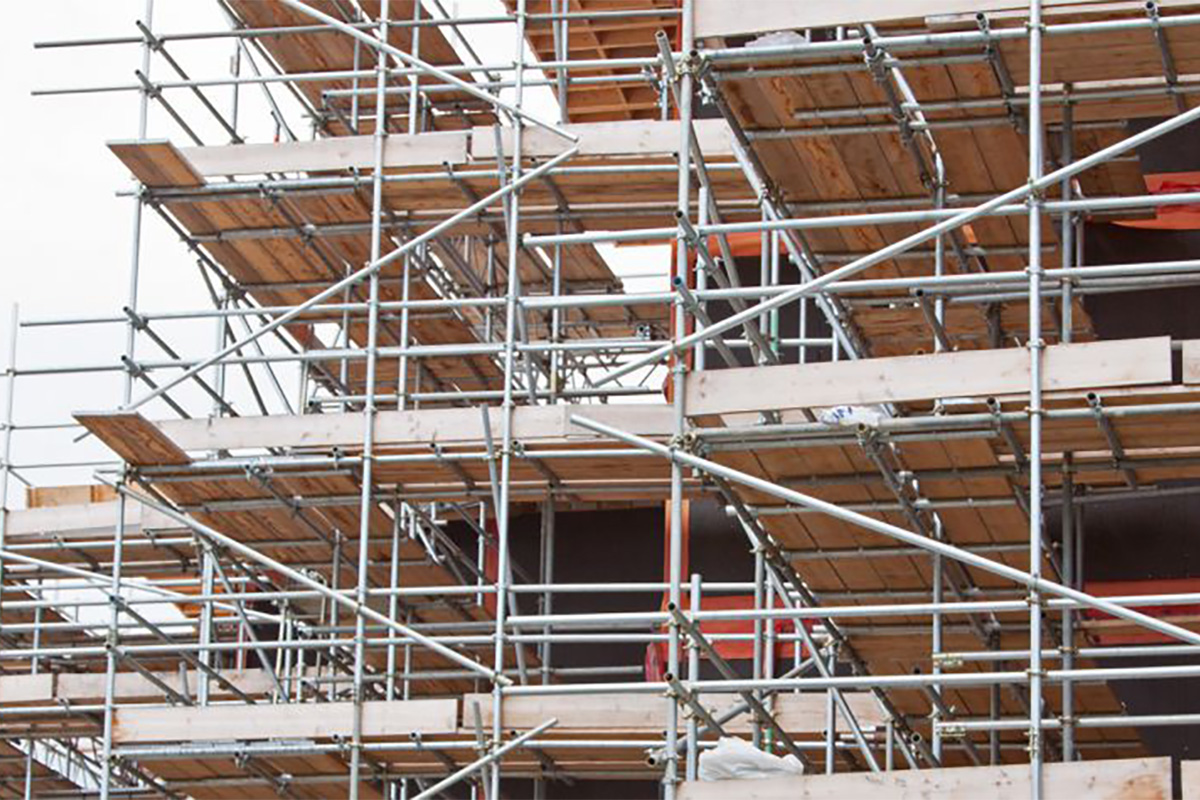Exploring the Different Sorts Of Scaffolding Made Use Of in Building And Construction Projects
The construction industry depends heavily on different types of scaffolding to fulfill details job requirements, each offering distinct benefits and applications. Conventional frame scaffolding offers a durable foundation for general jobs, while suspended scaffolding is vital for work on high-rise frameworks.

Typical Frame Scaffolding
Typical frame scaffolding is just one of the most extensively utilized methods in the construction market because of its robustness and adaptability. This system includes upright and horizontal structures that are set up to produce a stable system for materials and employees. The major parts include vertical messages, straight journals, and diagonal braces, which together provide a solid structure that can sustain considerable loads.
One of the essential advantages of typical structure scaffolding is its adaptability to numerous building tasks, ranging from residential buildings to large commercial structures. The modular style enables for simple setting up and disassembly, making it effective for both long-term and short-term jobs. Additionally, the system can be tailored in height and width, suiting various building styles and site conditions.
Safety is critical in scaffolding applications, and conventional frame systems are outfitted with guardrails and toe boards to avoid falls and make sure worker defense. Furthermore, routine assessments and adherence to safety laws are crucial in keeping the stability of the scaffold. On the whole, traditional structure scaffolding remains an essential selection in the building sector, giving a dependable system for labor and improving total project performance

Suspended Scaffolding
Suspended scaffolding supplies a distinct solution for building and construction jobs that require access to raised surfaces, particularly in scenarios where typical framework scaffolding may be unwise. This sort of scaffolding is usually put on hold from the roof covering or upper degrees of a framework, making use of a system of ropes, pulley-blocks, and systems to produce a functioning area that can be adapted to various heights.
Among the main advantages of suspended scaffolding is its versatility. It can be conveniently repositioned or decreased to accommodate changes in building needs, making it excellent for tasks such as window installation, façade job, and upkeep on skyscrapers. Furthermore, the marginal impact of put on hold scaffolding allows for much better use ground space in urban settings, where area is commonly minimal.
Safety is an essential factor to consider in the usage of suspended scaffolding. Overall, suspended scaffolding supplies a efficient and reliable remedy for accessing hard-to-reach locations in various building and construction scenarios, enhancing both performance and security on site.
System Scaffolding
System scaffolding, frequently considered a modern-day option in the scaffolding industry, includes pre-engineered elements that can be rapidly assembled and adjusted for various building and construction jobs. Scaffolding. This sort of scaffolding is identified by its modular design, which allows for adaptability and efficiency on work websites, fitting different heights and architectural requirements
Usually made from high-strength steel or aluminum, system scaffolding provides improved resilience and security. The components include upright messages, horizontal journals, and angled braces, which interconnect securely, making certain a robust framework. The layout usually integrates standard fittings, simplifying assembly and disassembly procedures, thus lowering labor time and costs.

Rolling Scaffolding
Moving scaffolding is a flexible alternative to typical set scaffolding, created for wheelchair and ease of usage on construction websites. This sort of scaffolding contains a system sustained by frameworks with wheels, allowing employees to quickly relocate it as needed. The flexibility function considerably boosts performance, as it decreases downtime related to assembling and taking apart fixed scaffolding.
Typically built from light-weight materials such as aluminum or steel, rolling scaffolding provides a tough yet portable option for projects calling for regular repositioning - Scaffolding. It is specifically advantageous in tasks such as paint, drywall setup, and electric job, where access to different elevations and locations is needed
Safety and security is critical in rolling scaffolding style, with features such as locking wheels to protect against unintentional activity when in usage, and guardrails to protect employees from drops. Furthermore, lots of designs are flexible in elevation, suiting different project needs.
Cantilever Scaffolding

The design of cantilever scaffolding typically involves making use of brackets or arms anchored to a building or framework, making it possible for the system to extend outward check it out securely. Security is paramount; hence, these scaffolds should be engineered to hold up against different loads and ecological problems. Routine examination and maintenance are necessary to make certain structural stability and worker security.
Cantilever scaffolding is preferred for its flexibility and reliable use of area, making it a popular option in city environments where space restraints prevail. It helps with less complicated access to high altitudes, ultimately contributing to the general effectiveness of building and construction tasks. Just like all scaffolding types, appropriate training and adherence to safety and security criteria are vital for employees making use of cantilever scaffolding.
Verdict
Finally, the diverse sorts of scaffolding made use of in construction projects each serve unique objectives customized to details website needs. Traditional framework scaffolding supplies stability, while suspended scaffolding offers convenience for raised jobs. System scaffolding assists in fast assembly, and rolling scaffolding improves wheelchair for varying work environments. Cantilever scaffolding effectively deals with challenges in urban settings. Recognizing these scaffolding types is important for optimizing safety and security and productivity in building, inevitably adding to the successful conclusion of tasks.
Standard framework scaffolding provides a tough foundation for basic tasks, while suspended scaffolding is vital Continued for job on high-rise structures.Moving scaffolding is a versatile choice to standard fixed scaffolding, developed for mobility and simplicity of use on building and construction sites. As with all scaffolding types, appropriate training and adherence to safety requirements are crucial for workers making use of cantilever scaffolding.
Conventional structure scaffolding offers stability, while suspended scaffolding uses versatility for raised jobs. System scaffolding assists additional hints in fast setting up, and rolling scaffolding improves flexibility for varying job environments.